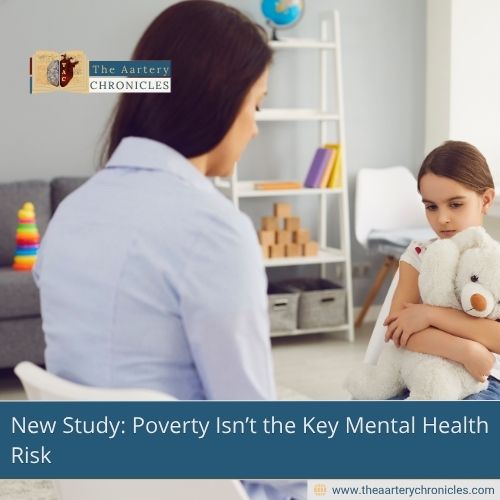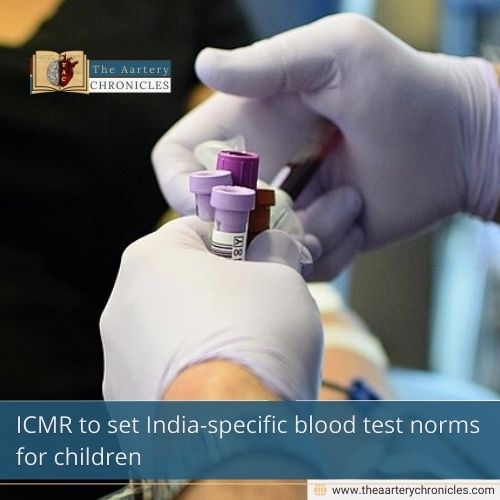

New Study: Poverty Isn’t the Key Mental Health Risk
Summary: A new study shows that poverty doesn’t actually make the impact of parental mental health issues on kids any worse. Contrary to what many people think, emotional struggles between parents and children happen no matter how much money a family has. These results challenge old ideas and might lead to mental health programs that target all socioeconomic groups, not just low-income families.
Does Poverty Worsen Mental Health in Children? A New Study Says No
Lots of people think that growing up poor makes mental health issues worse, especially for kids. But a new international study, which includes a researcher from SWPS University, shows that being in poverty doesn’t really change the way parents’ and kids’ mental health are connected.
This research, published in Current Psychology, breaks away from traditional assumptions and introduces fresh perspectives for mental health intervention planning.
Poverty and Mental Health: What We Know So Far
Usually, when we talk about poverty, meaning not having enough resources to take care of basic needs, people see it as a big factor behind kids’ mental health problems. Researchers have found that poverty is linked to
- More behaviour issues
- Higher chances of depression in kids
- It affects how happy and effective parents feel and parenting quality.
The Family Stress Model (FSM) suggests that financial problems can cause parents to feel stressed, which then makes it harder for them to parent effectively. That stress can also worsen kids’ behaviour.
There’s also the Context of Stress Model, which suggests that poverty exacerbates other psychological risks, much like a magnifier. But do these ideas really hold up?
Study Objective: Does Income Moderate Mental Health Links?
Dr. Agata Dębowska, psychologist and professor at SWPS University, raises a key concern: “Children from low-income families are more prone to mental disorders, but we don’t clearly understand why.”
Previous research looking into how socioeconomic status affects family mental health often had some methodological issues. This new study wanted to see if family income changes the way parental stress and kids’ mental health influence each other.
Methodology: Long-Term Cohort Study with Advanced Analytics
Researchers from SWPS University, University of Sheffield, Ankara University, and Lancaster University analysed data from the Millennium Cohort Study in the UK.
- Sample size: 10,309 participants (5,161 females and 5,148 males)
- Timeline: From 9 months to 17 years
- Tool: Autoregressive Latent Trajectory Modelling with Structured Residuals (ALT-SR)
- Focus: Explored mental health dynamics within-family and between-family levels
- Gender-specific models were also tested
Key Finding: Poverty Does Not Moderate Mental Health
Interestingly, the results showed that poverty didn’t really play a big role in changing how parental stress affects kids’ mental health. This goes against what the Stress Context Model predicts, which is that financial struggles make psychological distress worse.
“These results contradict the idea that poverty weakens people’s ability to manage other difficulties,” explains Dr. Dębowska.
Why Are These Results Different?
The authors suggest their solid statistical method might help explain why their results differ from earlier studies. Another important point is that parents’ mental health problems can directly impact how kids are doing, probably because they’re emotionally unavailable, no matter what’s going on externally with money or environment.
Mental Health Interventions Should Target All Families
Even though mental health problems tend to be more common among people with lower incomes, this study shows that we shouldn’t ignore higher-income families when it comes to different interventions.
If parental stress affects kids regardless of how much money their families have, then everyone should have access to mental health support, right?
Conclusion: Rethinking Poverty’s Role in Mental Health
This study really makes us rethink how we handle mental health support for families.
- It’s not just about income; poverty doesn’t automatically make parent-child mental health issues worse.
- Instead, using broad, universal prevention and intervention methods might actually work better than just focusing on families with low income.
- Plus, putting more into parental mental health could help kids across all kinds of socioeconomic backgrounds, not just those in tougher situations.

Dane
I am an MBBS graduate and a dedicated medical writer with a strong passion for deep research and psychology. I enjoy breaking down complex medical topics into engaging, easy-to-understand content, aiming to educate and inspire readers by exploring the fascinating connection between health, science, and the human mind.








